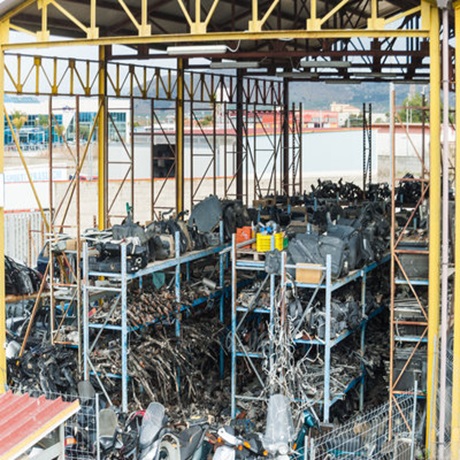- DatesDecember 2016 - November 2019
- SponsorEuropean Commission’s Horizon 2020 programme – Marie Skłodowska-Curie Actions, Innovative Training Networks (ITN)
- Funded€3,995,643 in total
- PartnersLeiden University, Norges Teknisk-Naturvitenskapelige Universitet, Delft University of Technology, Institut Polytechnique de Grenoble, Aston University, Linköping University
- Principal Investigator: Professor Daniel Prior
- Co-Investigators: Professor Michael Bourlakis and Professor Emel Aktas
- Researcher: Tobias Widmer
The transition towards a more resource-efficient society is a core goal of governments in Europe and worldwide. Circular economy comprises an integral approach to a resource efficient future, necessitating cooperation of all stakeholders along the value chain. To achieve this, the further development of circular, service-oriented business is especially promising and will be the focus of the proposed research. This links product and service design, supply chain management, manufacturing technologies, product and service use, product treatment at end-of-life, and business models and strategies such as portfolio management and branding.
The circular economy is a term for different business strategies, sustainability practices, and principles that lead to a reduction of natural resource consumption while maintaining economic growth. Considering the social shift towards more resource efficient consciousness, we deem that it is vital to business developers to have circularity informed value propositions to create and sustain benefits in the market. We are interested in understanding if, and how, businesses keep their products, components and materials at their highest delivery value, accept responsibility for your products and services, and manage the direct and indirect impacts of your decisions and activities on the natural environment and society.
In this project, we aim to identify ways in which firms can embed their business development activities in circular economy thinking to decrease their natural resource consumption while also increasing customer value. We expect this research to be of interest to manufacturing companies because a primary aim of circular economy is to decouple economic growth and production from virgin resource consumption, which is potentially conflicting to most companies' growth strategy and business as usual.
The goal of a circular economy is to restore environmental quality, increase the economic prosperity and guarantee social equality to the benefit of current and future generations, and ultimately to accomplish sustainable development. Understanding these elements important areas where organisations such as the United Nations suggest we need more focus.









